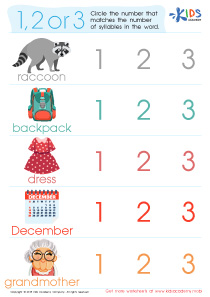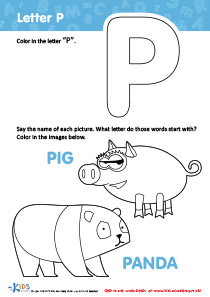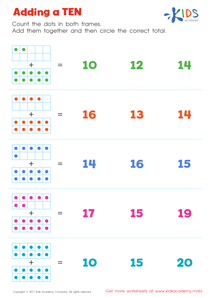Normal Foundations in Operations Within 100 Quizzes for Ages 6-7
9 results
9 filtered results
Clear all filters9 filtered results
-
From - To
Dive into the exciting world of math with our "Normal Foundations in Operations Within 100" interactive assessment quizzes, specially designed for curious minds aged 6-7. These engaging quizzes offer a unique way to explore and master the basics of operations within the 100 range, ensuring a solid foundation in math. Each quiz is carefully crafted to challenge young learners while providing instant feedback to reinforce understanding and encourage progress. Perfect for building confidence and skills in math, our Normal Foundations in Operations Within 100 quizzes are the go-to resource for parents and educators seeking a fun, effective learning tool for children ages 6-7.
In the ever-evolving landscape of education, innovative tools and methods are continuously sought after to enhance learning and comprehension among young students. One such pioneering approach that has garnered attention is the interactive quizzes on "Normal Foundations in Operations Within 100" specifically designed for children aged 6-7. These quizzes represent a breakthrough in educational technology, offering a unique and effective way for young learners to grasp the fundamental concepts of mathematics within the numerical range of 1 to 100.
The "Normal Foundations in Operations Within 100 for Ages 6-7" quizzes are more than just a learning tool; they are a bridge connecting young minds to the vast universe of numbers in an engaging, enjoyable, and effective manner. At this critical stage of cognitive development, children are not only learning to count but are also beginning to understand the relationships between numbers through basic operations like addition and subtraction. The introduction of these quizzes into their study routine can significantly reinforce these foundational mathematical principles.
The interactive aspect of these quizzes is what sets them apart from traditional learning methods. Instead of passive learning, where children are merely recipients of information, these quizzes encourage active participation. Children are prompted to solve problems, and through a system of instant feedback, they can immediately see the results of their efforts. This instant feedback loop is crucial for young learners as it motivates them to understand their mistakes and learn from them, fostering a growth mindset from an early age.
Moreover, the "Normal Foundations in Operations Within 100 for Ages 6-7" quizzes are meticulously designed to cater to the diverse learning paces and styles of children. Every child is unique, and recognizing this, the quizzes are crafted to be adaptive. They can adjust the difficulty level based on the child's performance, ensuring that every learner, regardless of their proficiency level, finds the quizzes challenging yet achievable. This personalization aspect is key to keeping children engaged and preventing feelings of frustration or disinterest.
Another undeniable advantage of these interactive quizzes is their accessibility. With the digital age in full swing, access to educational resources online has become more straightforward. Parents and educators can easily integrate these quizzes into the learning regimen of children, whether as part of their homework routine or as a fun educational activity during their leisure time. This flexibility ensures that learning doesn't have to be confined within the walls of a classroom but can happen anytime, anywhere.
In essence, the "Normal Foundations in Operations Within 100 for Ages 6-7" quizzes are not just an educational tool; they are a catalyst for inspiring a love for mathematics among young learners. By making math fun, interactive, and accessible, these quizzes lay down a strong foundation upon which children can build their future mathematical understanding. In a world where the importance of STEM (Science, Technology, Engineering, and Mathematics) education is increasingly recognized, instilling a positive attitude towards math from an early age is invaluable. Through these quizzes, children are not only learning about numbers; they are embarking on a lifelong journey of curiosity, problem-solving, and critical thinking.











